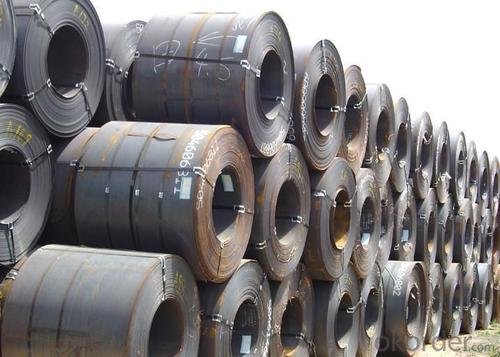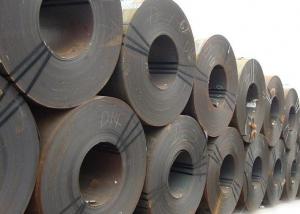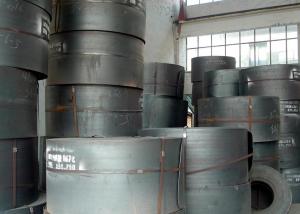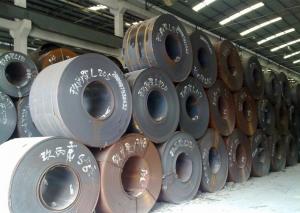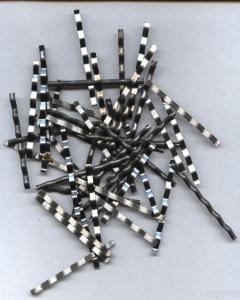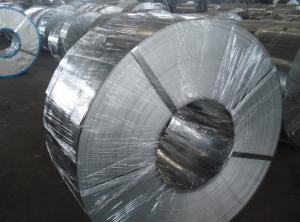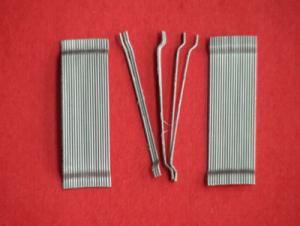Hot Rolled Steel JIS Standard, 60mm-100mm With Competive Price
- Loading Port:
- China Main Port
- Payment Terms:
- TT or L/C
- Min Order Qty:
- 50 tons m.t.
- Supply Capability:
- 50000 Metric Tons Per Month m.t./month
OKorder Service Pledge
OKorder Financial Service
You Might Also Like
Specification Of Hot Rolled Steel JIS Standard, 60mm-100mm With Competive Price
|
|
Thickness |
Width |
Length |
Coil Inside Diameter |
|
HOT ROLLED STEEL COIL |
1.50~25.0mm |
600~2000mm |
|
762mm |
|
HOT ROLLED STEEL STRIP |
1.50~20.0mm |
30~720mm |
|
762mm |
|
HOT ROLLED STEEL PLATE |
6.00~700mm |
500~4500mm |
4000~18000mm |
|
|
HOT ROLLED STEEL SHEET |
1.20~25.0mm |
50~2000mm |
0~18000mm |
|
|
HOT ROLLED STEEL CHEQUERED |
1.40~10.0mm |
900~1500mm |
0~18000mm |
|
Standard &Grade of Hot Rolled Steel JIS Standard, 60mm-100mm With Competive Price
|
|
JIS |
ASTM |
SAE |
EN |
|
Commercial Quality |
G3131 SPHC |
A569 A635 A659 A1011 CS Type A, B, C |
1006~1025 |
10111 DD11 |
|
Drawing Quality |
G3131 SPHD |
|
1006~1010 |
10111 DD12 |
|
Deep Drawing Quality |
G3131 SPHE |
A622 A1011 DS Type A, B |
1006~1010 |
10111 DD13 DD14 |
|
General Structure (T.S.<490N/mm2) |
G3101 SS330 SS400 G3106 SM400A G3132 SPHT1 SPHT2 SPHT3 |
A36 A283 GR.C A570 GR.30~40 A1001 SS GR.30~40 |
1010~1025 |
|
|
General Structure (T.S.≥490N/mm2) |
G3101 SS490 G3106 SM490A SM490YA G3132 SPH4 |
A570 GR.45~50 A607 GR.45~70 A1011 SS GR.45,50 A1011 HSLAS GR.45~70 |
J1392 050X |
|
Definition of Hot Rolled Steel JIS Standard, 60mm-100mm With Competive Price
Rolled to its final dimensions while it’s hot enough to scale, our hot-rolled steel is an amalgamation of the various qualities of steel. It can be in the form of plates, sheets and coils. Our Hot-Rolled Steel Sheets and Coils are applied to a wide range of uses such as automobile, electrical appliance, machinery manufacturing, container manufacturing, shipbuilding, bridge, pipeline, and receive high acclaim from our customers for its excellent quality.
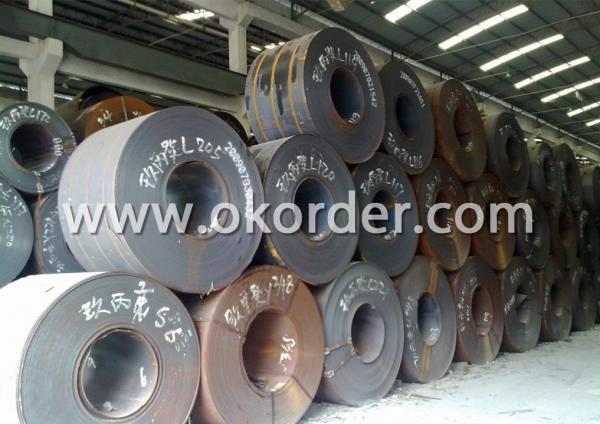
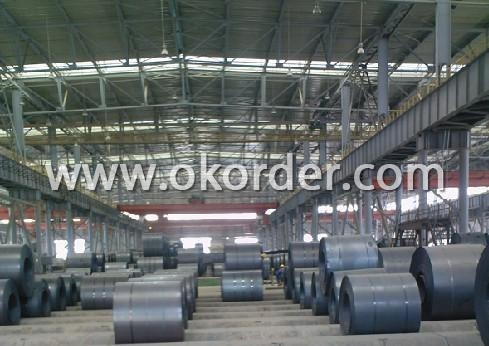
Usage/Application Of Hot Rolled Steel JIS Standard, 60mm-100mm With Competive Price
As raw material for:
Container &Pipe Production
Carbon Structural Steel
Low Alloy Steel
High Quality Carbon Structural Steel
Atmospheric Corrosion Resistant Steel
Low Carbon Steel (Commercial Quality, Drawing Quality, Deep Drawing Quality)
Packaging & Delivery of Hot Rolled Steel JIS Standard, 60mm-100mm With Competive Price
The packing of coils consists of anti-damp paper, PVC film, hardboard paper, steel box, strapped with steel strips, fitted with locks and edge protectors and guarantees the optimal condition of the delivered goods. Each coil can be additionally fitted with wooden/steel skids(eye to the side) or wooden pallets(eye to the sky).
Bulk shipment packed with steel belt.
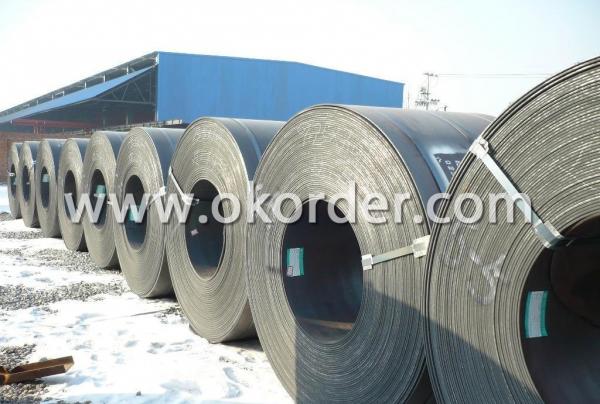
- Q: How is carbon steel different from stainless steel?
- Carbon steel and stainless steel differ primarily in their composition and properties. Carbon steel contains a higher amount of carbon, which makes it more susceptible to rust and corrosion. In contrast, stainless steel contains chromium and other alloys, making it more resistant to rust and corrosion. Stainless steel also has a higher tensile strength and is more durable, while carbon steel is generally cheaper and easier to shape and weld.
- Q: How is steel used in the manufacturing of agricultural machinery?
- Steel is used in the manufacturing of agricultural machinery due to its exceptional strength, durability, and versatility. It is utilized for various components such as frames, axles, and blades, providing robustness and resistance to heavy loads, impacts, and harsh environmental conditions. Additionally, steel's malleability allows for precise shaping and customization, enabling manufacturers to create complex parts required for specific agricultural tasks. Overall, steel plays a vital role in ensuring the reliability and longevity of agricultural machinery, contributing significantly to the productivity and efficiency of farming operations.
- Q: What are the factors to consider when selecting the appropriate steel grade for welding?
- When selecting the appropriate steel grade for welding, there are several factors to consider. Firstly, the intended application and the specific requirements of the project should be taken into account. This includes factors such as the desired strength, hardness, and corrosion resistance of the welded joint. Additionally, the welding process to be used and the specific welding parameters, such as heat input and interpass temperature, should also be considered. Furthermore, the base metal's composition, including carbon content and alloying elements, must be evaluated to ensure compatibility with the welding process and to minimize the risk of cracking or other defects. Finally, cost considerations and availability of the chosen steel grade should also be taken into consideration during the selection process.
- Q: What are the different types of steel bars and their uses?
- There are several types of steel bars, each with its own unique properties and uses. Some common types include carbon steel bars, alloy steel bars, stainless steel bars, and tool steel bars. Carbon steel bars are widely used in construction and general manufacturing due to their strength and affordability. Alloy steel bars are known for their exceptional strength and durability, making them suitable for applications requiring high strength and resistance to wear and tear. Stainless steel bars are corrosion-resistant and commonly used in food processing, architectural structures, and medical equipment. Tool steel bars are specifically designed for toolmaking, offering high hardness, toughness, and heat resistance. Overall, the different types of steel bars cater to a wide range of industries and applications.
- Q: What are the different types of steel scaffolding systems?
- There are several types of steel scaffolding systems, including tube and coupler scaffolding, system scaffolding, and frame scaffolding. Tube and coupler scaffolding consists of tubes and couplers that are connected together to form a stable structure. System scaffolding uses pre-designed components that can be easily assembled and dismantled, providing flexibility and efficiency. Frame scaffolding is made up of frames and cross braces, offering a simple and sturdy solution for construction projects.
- Q: How is steel forgings inspected for quality assurance?
- Steel forgings are inspected for quality assurance through various methods such as visual inspection, dimensional measurements, non-destructive testing techniques like ultrasonic testing or magnetic particle inspection, and mechanical testing. These inspections ensure that the forgings meet the required specifications, including dimensions, surface finish, and internal soundness. Additionally, third-party certifications and audits may be conducted to ensure compliance with industry standards and customer requirements.
- Q: How are steel pipes used in the transportation of chemicals?
- Steel pipes are commonly used in the transportation of chemicals due to their strength, durability, and resistance to corrosion. These pipes are used to safely transport various types of chemicals, such as acids, solvents, and corrosive substances, from one location to another. The steel material provides a reliable and secure conduit for the chemicals, preventing leaks or contamination during transit. Additionally, steel pipes can withstand high pressure, making them suitable for transporting chemicals over long distances.
- Q: How are steel plates heat-treated for improved strength?
- Steel plates are heat-treated for improved strength through a process called quenching and tempering. This involves heating the steel plates to a specific temperature and then rapidly cooling them in a liquid, such as oil or water, to harden the material. After quenching, the plates are then reheated to a lower temperature and held there for a certain period to reduce the internal stresses and increase toughness. This heat treatment process enhances the strength, hardness, and durability of the steel plates, making them suitable for a wide range of applications.
- Q: How do steel products contribute to the construction of zoos and wildlife sanctuaries?
- Steel products play a vital role in the construction of zoos and wildlife sanctuaries by providing structural support and durability to various facilities and enclosures. Steel is used to construct enclosures, fences, gates, and animal habitats, ensuring the safety and security of the animals and visitors. Additionally, steel is used in the construction of walkways, viewing platforms, and bridges, allowing visitors to have a closer and safer interaction with the animals. Its strength and versatility make steel an essential material in creating a sustainable and long-lasting environment for the animals, while also enhancing the overall aesthetics of these facilities.
- Q: How is steel used in the production of industrial boilers and pressure vessels?
- Steel is used in the production of industrial boilers and pressure vessels due to its strength and durability. It provides the necessary structural support and can withstand high temperatures and pressures. Additionally, steel is resistant to corrosion, making it ideal for containing and heating various substances in industrial processes.
1. Manufacturer Overview
| Location | Shandong, China |
| Year Established | 1958 |
| Annual Output Value | |
| Main Markets | Mid East Northern Europe North America Eastern Asia Africa Eastern Europe Southeast Asia Western Europe Southern Europe |
| Company Certifications | ISO 9001 |
2. Manufacturer Certificates
| a) Certification Name | |
| Range | |
| Reference | |
| Validity Period |
3. Manufacturer Capability
| a) Trade Capacity | |
| Nearest Port | Tianjin; Qingdao |
| Export Percentage | 80% |
| No.of Employees in Trade Department | 100People |
| Language Spoken: | English; Chinese; Korean |
| b) Factory Information | |
| Factory Size: | |
| No. of Production Lines | |
| Contract Manufacturing | OEM Service Offered; Design Service Offered |
| Product Price Range | Average |
Send your message to us
Hot Rolled Steel JIS Standard, 60mm-100mm With Competive Price
- Loading Port:
- China Main Port
- Payment Terms:
- TT or L/C
- Min Order Qty:
- 50 tons m.t.
- Supply Capability:
- 50000 Metric Tons Per Month m.t./month
OKorder Service Pledge
OKorder Financial Service
Similar products
Hot products
Hot Searches
Related keywords



